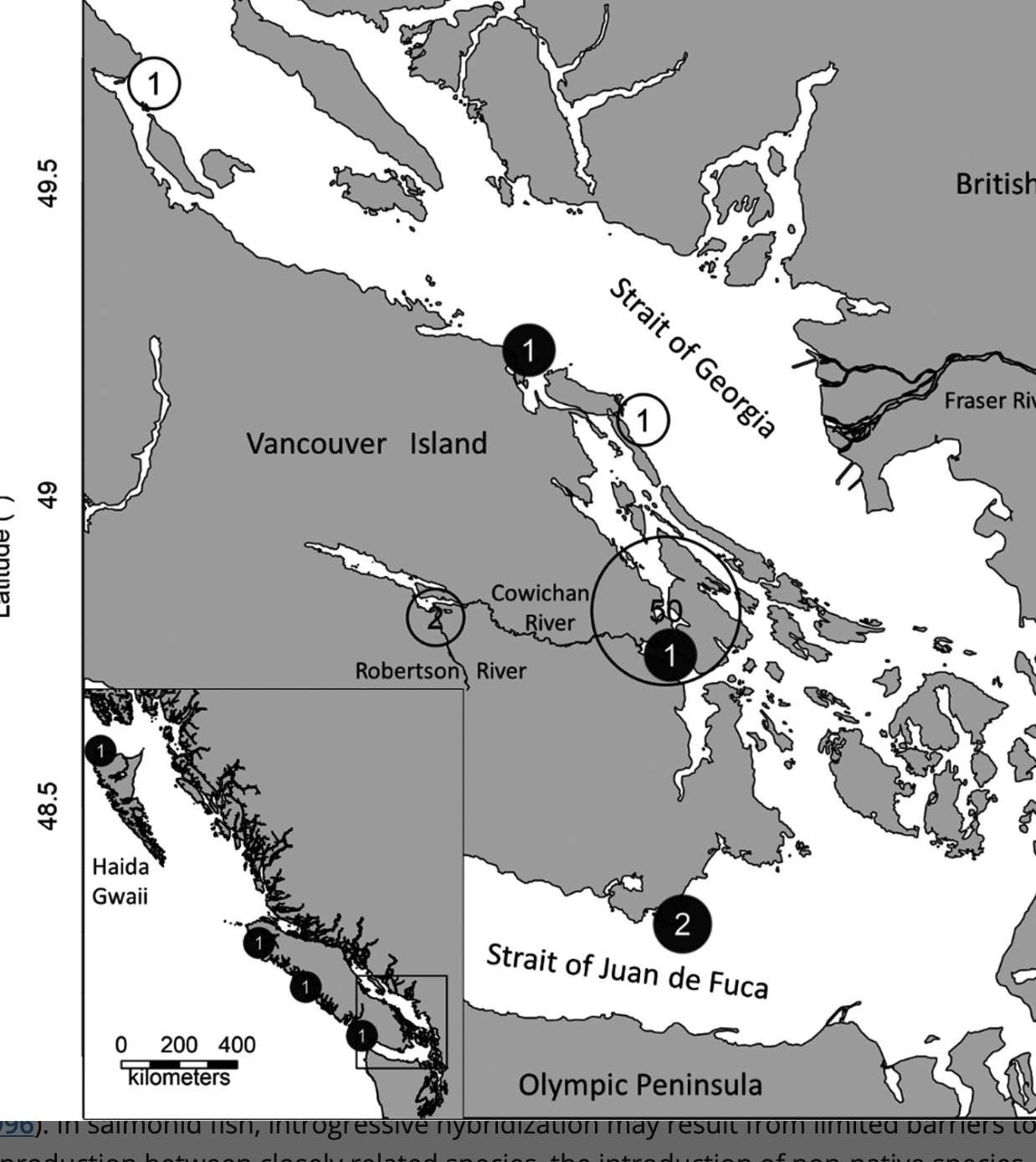The climate crisis could be driving the hybrid salmon population
The hybrids of Chinook and Coho salmon were discovered in the Cowichan River on Vancouver Island, British Columbia
Your support helps us to tell the story
From reproductive rights to climate change to Big Tech, The Independent is on the ground when the story is developing. Whether it's investigating the financials of Elon Musk's pro-Trump PAC or producing our latest documentary, 'The A Word', which shines a light on the American women fighting for reproductive rights, we know how important it is to parse out the facts from the messaging.
At such a critical moment in US history, we need reporters on the ground. Your donation allows us to keep sending journalists to speak to both sides of the story.
The Independent is trusted by Americans across the entire political spectrum. And unlike many other quality news outlets, we choose not to lock Americans out of our reporting and analysis with paywalls. We believe quality journalism should be available to everyone, paid for by those who can afford it.
Your support makes all the difference.The climate crisis appears to be increasing the numbers of hybrid salmon in western Canada.
The hybrids of Chinook and Coho salmon were discovered in the Cowichan River on Vancouver Island, British Columbia.
While there have been rare occurrences of hybrid fish in the past, new research discovered a consistent but still small number of hybrids near the river mouth. Chinook salmon historically spawn in the area in late summer and Coho salmon in the autumn.
Close to 5 per cent of the fish sampled for the study were hybrids, according to a team led by Andres Araujo of the Molecular Genetics Laboratory and Pacific Biological Station at Fisheries and Oceans Canada in Nanaimo.

The research was published earlier this month in the journal Ecology and Evolution and based on genetic testing of samples between 2013 and 2019.
“Mitochondrial DNA indicated that most of these fish resulted from the hybridization of Coho salmon females and Chinook salmon males,” the researchers said.
Several individuals displayed an abnormal scale arrangement towards the back fin. One hybrid juvenile had a “pyloric caeca count” (a tubular pouch that opens into the alimentary canal) somewhere between what’s typical of Chinook and Coho salmon.
The research team also found that the hybrid salmon had gums that were greyish in colour, between the black of the Chinook and white of the Coho salmon.
Most hybrids originated in the Cowichan River in 2014, the researchers noted.
Freshwater salmon are increasingly at the mercy of habitats undergoing rapid changes linked to the climate crisis, and the Chinoo-Coho hybrids may also be result of environmental changes.
Low water levels in the river during recent dry summers appears to have delayed Chinook salmon spawning. This meant that the fish had more time to overlap with the Coho salmon, which spawn in the autumn, resulting in interbreeding.
It’s not the only western region where salmon populations are being impacted by climate-driven conditions.
This summer hundreds of thousands of young salmon died in Klamath River in northern California as drought conditions left a parasite to thrive, decimating the population.
In the Sacramento River, the state’s largest, there was a mass die-off of Chinook juvenile salmon with only 2 per cent believed to have survived the abnormally warm water conditions this summer.

Join our commenting forum
Join thought-provoking conversations, follow other Independent readers and see their replies
Comments